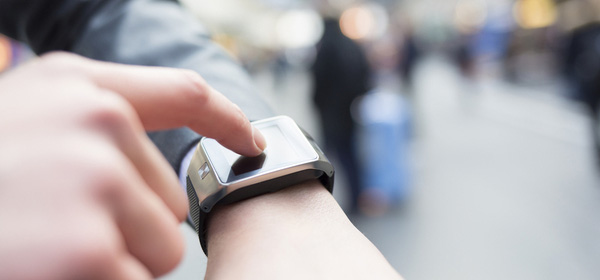Smart watches have proliferated like breeding mice in recent years, but who’s complaining? They have the capacity to offer peace of mind to the wearer and to his or her family, and because the range is extensive, you’re more likely to find one with a price tag that suits you.
The primary aim of the smart watches – also known as life alarms and safety watches – is to send an emergency alert to a designated mobile phone number or to a 24-hour monitoring service when there is a problem or the wearer is concerned about his or her safety.
They are particularly useful for people who live alone and for those with medical conditions such as dementia, Alzheimer’s, autism, heart disease, diabetes or any chronic condition.
In addition to alerts, most offer a range of features including a heart rate monitor and pedometer; some will tell the time and date audibly as well as visually, and some can provide medication reminders and track daily activity.
Some monitor the wearer’s activity and behaviour, and if there is any variation in what is normal, an alert is sent.
Smart watches have largely replaced alarm pendants, which were generally operational only in an area around the home. The smart watches claim to operate virtually everywhere there is mobile phone coverage.
What’s on offer
There is a wide product selection with prices ranging from about $140 to $500.
How they work
The smart watches operate via satellite communication.
If the device falls rapidly, it triggers an alert; if the wearer doesn’t move for a specified period of time, it triggers an alert; if the device starts moving rapidly, for instance, if the wearer gets into a car or train, it may trigger an alert, depending on the programming.
The pros
- Peace of mind through real-time tracking of the wearer.
- Devices can be programmed with the specific requirements of the wearer or the wearer’s family.
- A range of alerts can be sent without the wearer having to press an emergency button.
- Some smart watches have their own sim cards and offer an unlimited number of incoming calls and a set number of minutes of outgoing calls that resets each month.
Check what’s on offer before you buy.
The cons
- CHOICE cautions that while GPS location is good for tracking the devices, a cluster of tall buildings can interfere with the signal. “We found those that allowed tracking by sending an SMS request worked well,” it says.
- CHOICE also advises that a smart watch that will accept more than one contact is preferable. “The more contacts you have, the better – in case the first contact is away from their phone,” it said.
- The size of some of the screens may be a challenge for some wearers.
- Some watches are waterproof, some aren’t; some are impact-proof, some aren’t.
Have you had experience with a smart watch?
Related articles:
NBN risk with medical alarms?
Double your battery life
Turn your smartphone into a remote

